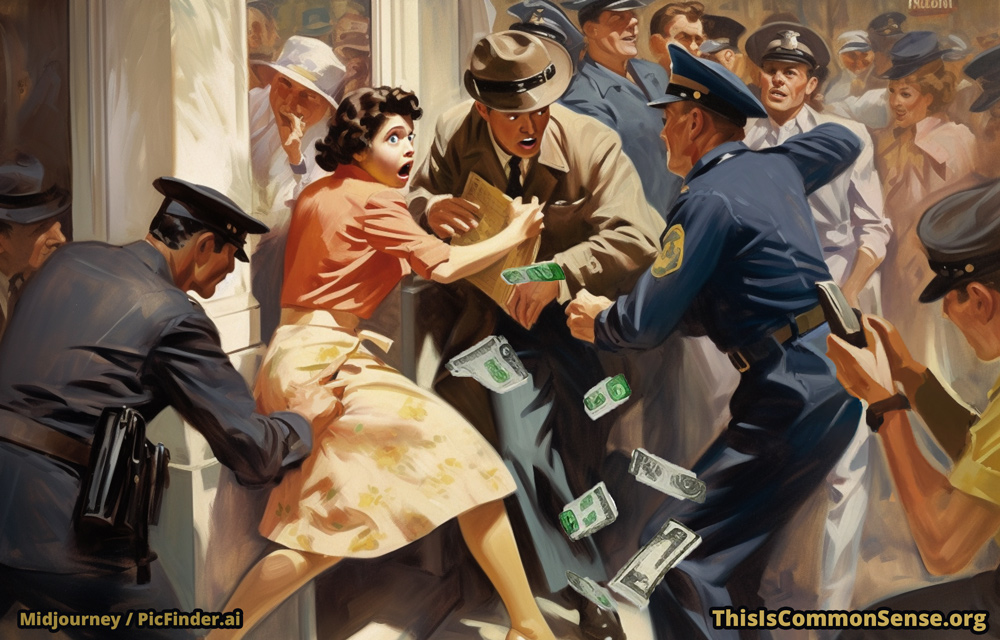In August 2020, Jerry Johnson made a mistake: he carried a large sum of money while flying from Charlotte to Phoenix to buy a semi truck for his business. Police grabbed the cash when he arrived in Phoenix.
Mr. Johnson had decided to use cash to avoid certain fees and on the assumption that traveling with cash is legal.
Perhaps it is legal according to mere law. But police often grab any large amount of cash they see someone carrying. They accuse the naïve owners of drug-running and care nothing about actual evidence.
Threatened with jail when interrogated, Johnson signed a form that, he later understood, stated that the $39,500 was not his. The government kept the cash until he could wrest it back in court.
This, you may remember, is par for the course for civil asset forfeiture in America, where government agents behave like highway robbers.
But in this case — this course — the story didn’t end well for the robbers, for Jerry Johnson has gotten back his money.
But he has not been made whole. As Land Line points out, in addition to all the time and trouble, there were the legal expenses that Johnson incurred before he obtained the help of Institute for Justice.
And Johnson also lost business revenue: “There were a lot of business opportunities I’ve missed out on because that money was just sitting in a government account.”
Thankfully, the story is not over, yet, for there are organizations like Pacific Law Foundation and Institute for Justice to help victims of government predation at no charge. In this case, it was Institute for Justice that represented the victim in court.
IJ will continue the case to press for compensation.
This is Common Sense. I’m Paul Jacob.
Illustration created with Midjourney and DALL-E2
—
See all recent commentary
(simplified and organized)






